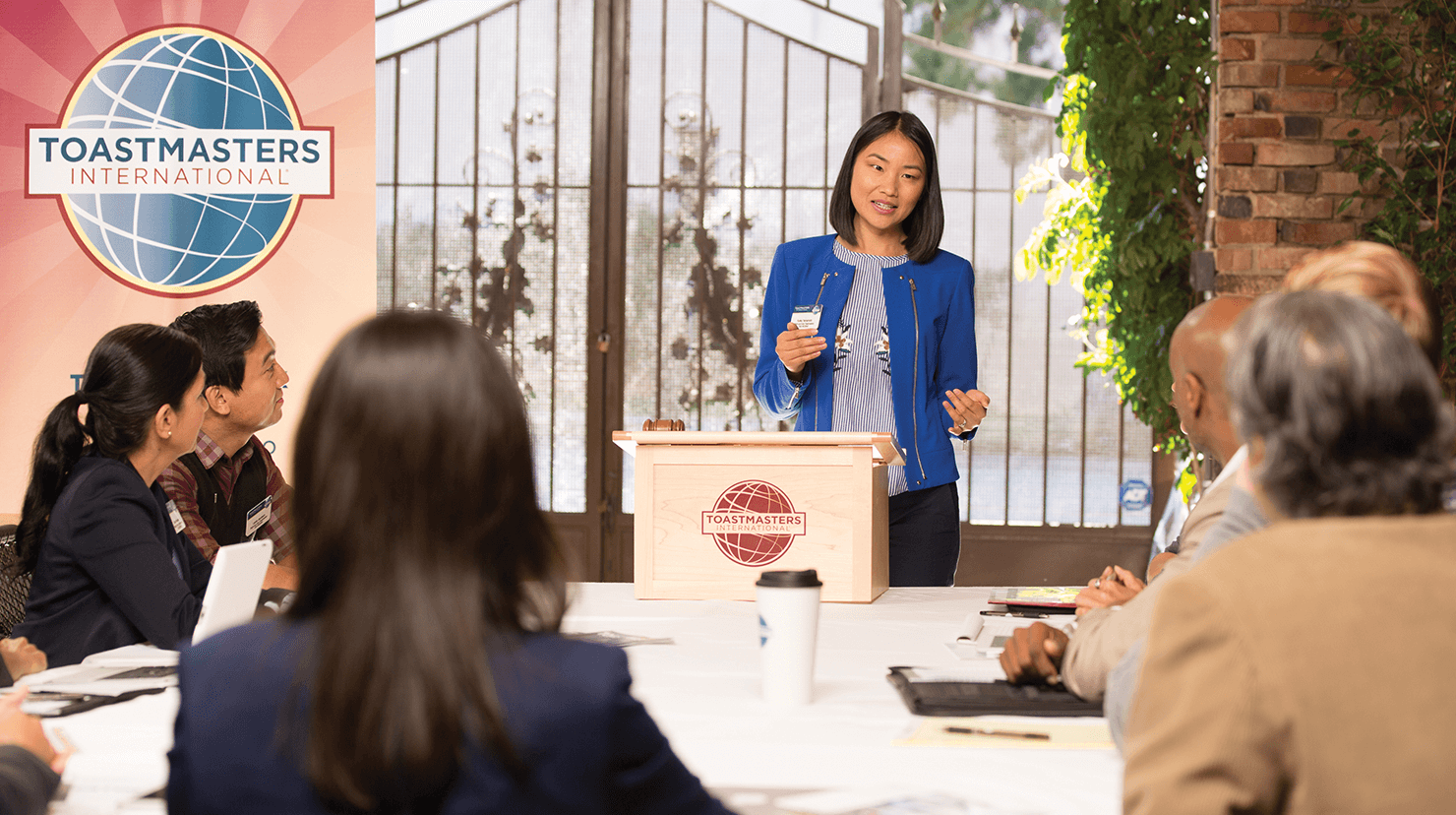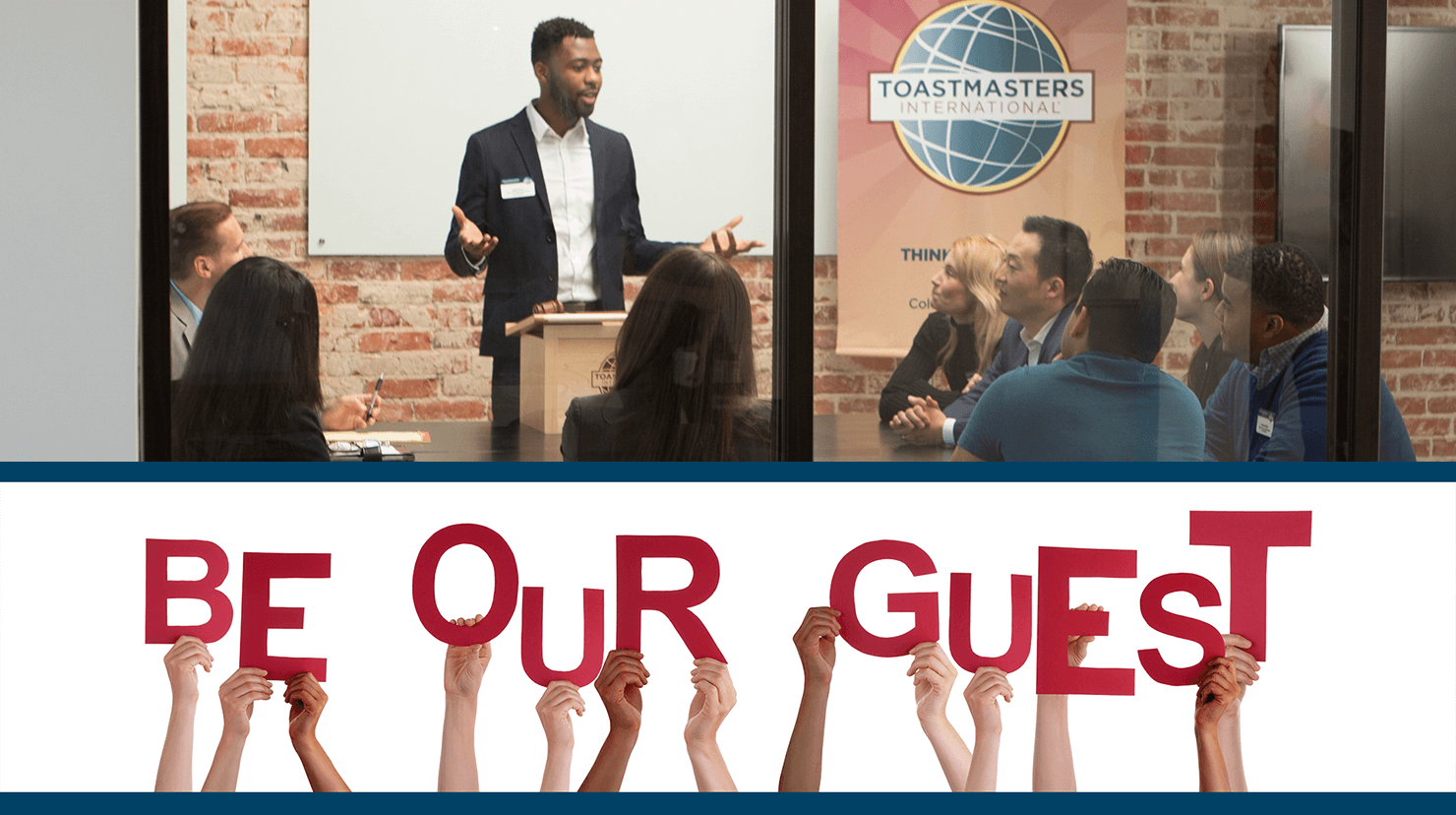
Leadership is in the details. It’s about delegating tasks to your team; it’s about looking at logistical questions; it’s about making a commitment to fulfilling the needs of the people you serve. When it comes to Toastmasters, good leadership results in an engaging member experience.
I’ve experienced both the good and the bad of leadership. Not long ago, I was hired to speak at an association meeting. Before the meeting, I reached out to the president with some logistical questions. Would there be a dinner afterward? Should I send my slide deck to somebody? The group president always answered with the same refrain: “I’ll take care of that!”
The day of the meeting she ran around setting up the registration table, helping members sign in, handing out badges, greeting everybody, and trying to cover audiovisual issues. At first, I thought that it was just a small organization and she had to wear many hats, but as I met more people on her team, I realized that wasn’t the case.
This leader hadn’t learned to delegate, nor had she learned the fundamental lesson of building community, no matter how big or small. Leadership is not about doing everything; it’s about involving your team in the process.
Members of your club want to help; leaders want to contribute. In the case of the association I was visiting, because everything had to be done by the group president—the way she wanted it done—
the needs and expectations of the attendees and presenters weren’t met. It did not seem like a great experience—for anybody.
Leadership is not about doing everything; it’s about involving your team in the process.
I have coached and trained all kinds of organizations around the world to help them design their customers’ experiences. The best ones make every constituent experience engaging. How? I’ve learned there are six universal elements that help leaders engage guests, grow the loyalty of members, and develop brand recognition.
1 Respect
Respect for members seems like an obvious choice when talking about creating an engaging experience. It’s one of the four Toastmasters International core values, along with integrity, service, and excellence. Certain factors are universal—like being courteous and listening attentively—but respect is also personal. How you show respect for members and guests requires careful consideration about the type of experience you want to deliver.
I surveyed some Toastmasters recently about their best and not-so-best experiences. The less-than-positive responses were often about respect: Meetings started late; members didn’t feel welcomed; they didn’t feel heard. Take the time to learn what matters to your club members—why they show up, what they want the experience to be like—and use that knowledge to show understanding and respect for their expectations. Toastmasters has many resources to help with this—the Member Interest Survey, the New Member Profile Sheet, the Club Quality Checklist, and the Moments of Truth module in the Successful Club Series.
2 Develop
When it comes to creating engaging meetings, club leaders would be wise to focus primarily on two elements of development: club culture and the meeting process.
Toastmasters meetings follow the same guidelines, but not all club meetings are the same, nor are the experiences of members and guests. What kind of personality does your club have? Are you formal? Are you casual and relaxed? Is there a wide range of ages and professions? Every club has a unique flavor, which is why Toastmasters encourages people to visit clubs until they find one that resonates with them.
Examine how your meetings are run. Walk through the experience of a typical meeting—from the attendee’s perspective—step-by-step, paying attention to the details and the transitions. Are guests greeted and introduced? Do some members always speak, while some never open up? Do meetings begin and end on time? By understanding the culture of your club and the process of your meetings, you can cultivate an engaging experience for everyone.
3 Connect
As a club leader, fostering a friendly and welcoming atmosphere is how you create community and grow your membership. But real connection takes focus and effort.
Some clubs assign a greeter for every meeting. Some create a buddy system, pairing new members or guests with established members to help them feel comfortable and connected at meetings.
Connection is also a personal objective. Leaders might feel so busy during meetings that their interactions with members become superficial. Sometimes they aren’t entirely present in conversations. Before the meeting, set an intention to focus on each person you talk with, shutting out all of the distractions and building a true connection.
4 Communicate
Improving communication is the only issue identified by every one of the organizations I’ve worked with over the years. Every single one. They know that great communication is the foundation of every success story.
Toastmasters is built on the goal of better communication. That includes communication with potential members as well as current members or guests. Make sure to follow up with people who have expressed an interest in joining or want more information.
Communicating with all members and guests—new and established—before, during, and after a meeting is one of the essentials of engagement. Timely information helps everyone feel confident and included. Do new members or guests know what to do after a meeting? Make sure they have information on how to join and who to reach out to with questions.
5 Acknowledge
Everyone likes to feel that their contributions are seen and matter. Toastmasters rewards members with ribbons, pins, and Pathways badges, but as a leader, you can personally acknowledge the contributions of any member or officer. When you acknowledge accomplishment, you also support engagement.
Do you take the time to say a few words to members who offer valuable feedback about club operations? How about members who take the time to make a new member feel welcome? How about an officer who goes above and beyond to help a meeting run smoothly? Everyone contributes to an engaging meeting in their own way and acknowledging that helps ensure it happens again.
6 Influence
Successful leaders positively influence people and outcomes by creating an environment of opportunity, continual improvement, communication, and service. Use your influence to do the same in your club.
How well are you delegating to help build the leadership skills of other officers? What can you do to help other officers play their vital role in creating engaging meetings? No matter what club role you play, all officers are responsible for respecting, developing, connecting, communicating, and acknowledging.
How do you encourage members to support each other and encourage them to grow? One good way is through mentorship. As a leader, try to team up more experienced members with newer Toastmasters whom they can guide and support. When you help members grow, you build a community that is more engaging, something that will permeate every meeting. Promote a united approach to engagement, and you will create evangelists for your club.
Take the time to learn what matters to people in your club.
A quality experience is part of your brand, and your reputation for delivering it is built in every meeting. Invite your members to help create it with you, for themselves and their fellow members and guests, and you will create a new level of enthusiasm in your club.
Ruby Newell-Legner is a Certified Speaking Professional, a Certified Virtual Presenter, and past president of the National Speakers Association. She specializes in enhancing the fan experience for 66 professional sports teams and 1,692 leisure and entertainment venues. Learn more at www.7StarService.com.
Related Articles

Club Experience
Give Members and Guests a Compelling CX

Club Experience
What’s the Scoop on Your Group?

Club Experience
Club Quality Checklist

Club Experience
Be Our Guest

Diversity and Inclusion



 Previous
Previous
 Previous Article
Previous Article